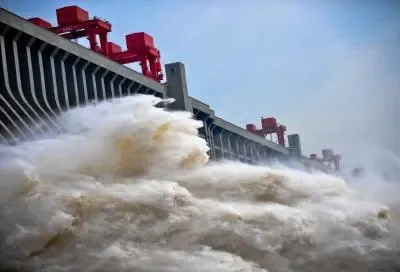How Will Afghanistan’s Dam Plans Impact Pakistan Amid Indus Water Treaty Tensions?

Synopsis
Key Takeaways
- Afghanistan plans to construct dams on the Kunar River, increasing regional tensions.
- Relations between Afghanistan and Pakistan are currently strained, particularly along the Durand Line.
- Pakistan accuses the Taliban of harboring militants threatening its security.
- No formal water management agreements exist between Afghanistan and Pakistan.
- The situation necessitates increased dialogue to avoid further conflict.
Kabul, Oct 24 (NationPress) A few months after India suspended the Indus Water Treaty following a Pakistan-sponsored terror attack in Pahalgam on April 22, Afghanistan has revealed its intent to construct dams on the Kunar River as soon as possible, raising concerns in Islamabad.
On X, Muhajer Farahi, the Deputy Information Minister of the Taliban, announced, "His Eminence Amir al-Mu'mineen, (referring to Taliban Supreme Leader Mawlawi Hibatullah Akhundzada), may God protect him, has instructed the Ministry of Water and Energy to initiate dam construction on the Kunar River immediately, and to engage local firms without waiting for foreign contractors."
This announcement follows a ceasefire agreement brokered between the two nations after a period of escalating tensions.
The Chitral River, known as the Kunar River in Afghanistan, stretches 480 kilometers through northern Pakistan and eastern Afghanistan.
Originating from the Chiantar glacier at the Gilgit Baltistan and Chitral border in Pakistan, it enters Afghanistan at Arandu and merges with the Kabul River in Nangahar Province, fed by the melting glaciers and snow of the Hindu Kush mountains.
Relations between Kabul and Islamabad have been strained, marked by recent clashes along the Durand Line.
Afghanistan's Foreign Minister Amir Khan Muttaqi visited New Delhi starting October 9, an event met with hostility by the Pakistani establishment, coinciding with drone attacks in Kabul.
Pakistan has accused the Taliban of harboring and assisting TTP militants, a growing threat to its security, resulting in fatalities among Pakistan Army personnel.
Since assuming control in 2021, the Taliban have emphasized prioritizing water sovereignty.
It is important to note that there is currently no collaborative water management framework between Afghanistan and Pakistan.
“Of the nine rivers that flow across the border, none have a formal agreement or mechanism to manage shared water resources,” states the International Water Management Institute.
Pakistan has historically raised alarms about Afghanistan's water rights, and this situation is likely to escalate challenges in the near future.









